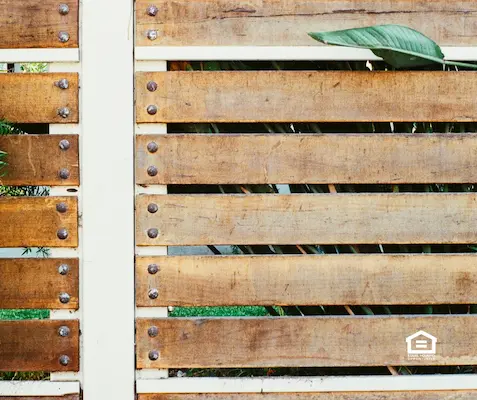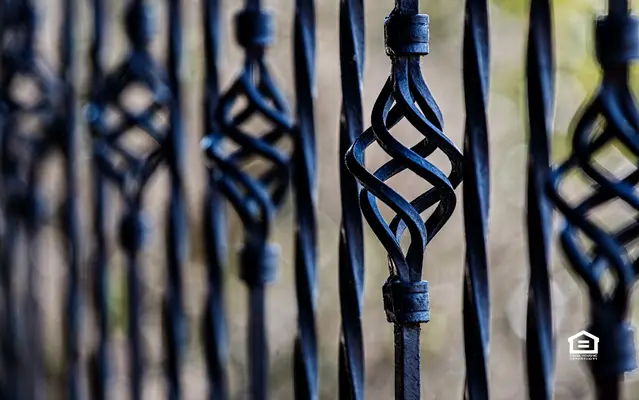Wood, Vinyl, Steel, or Aluminum Gate -What's Best for Your Single-Family Rental?
A gate is like the front door to your rental property’s outdoor living space. A well-chosen gate offers prospective tenants a good first impression and effortlessly blends both form and function. But what is the best material for a gate for your single-family rental property? There are many gate materials to choose from, each with both pros and cons. And all rental homes are different, which means there is no one right answer. However, by looking in detail at your gate material options, you can more easily determine which one is the right choice for your rental home. When choosing the best material for your property’s gate, it is important to keep both aesthetics and practical use in mind. A gate should be attractive, but it will also get a lot of use, so both appearance and durability are key considerations. Gates add security and privacy to a property, which makes them a good investment, but different materials offer different returns on that investment. In what follows, we’ll look at these pros and cons in terms of some of the most popular gate materials: wood, vinyl, steel, and aluminum.
Wood
One of the most popular materials used for both gates and fences is wood. With careful design, wood gates can create a beautiful entryway into your property’s outdoor space. Wood also has wide appeal because it is sturdy, natural, and affordable. There are many different types of wood to choose from, each with its own benefits. Wood can be painted or varnished in a wide range of colors and finishes, and if properly maintained, can last for many years in most climates. Out of the available options for gate materials, a wood gate will likely require the smallest up-front investment and add instant value and appeal to your property. Despite its many advantages, however, wood gates will require a high degree of maintenance. Wood gates must be painted or varnished regularly or risk becoming an eyesore. As wood ages, it also becomes susceptible to other problems, including warping, rotting, insect damage, and fire. Depending on the type of wood you choose, you may need to replace your gate in as few as five years, or it may last for fifteen years or more. As a rule, higher-quality hardwood will cost more upfront but could last more than a decade longer than softer, more susceptible woods.
Despite its many advantages, however, wood gates will require a high degree of maintenance. Wood gates must be painted or varnished regularly or risk becoming an eyesore. As wood ages, it also becomes susceptible to other problems, including warping, rotting, insect damage, and fire. Depending on the type of wood you choose, you may need to replace your gate in as few as five years, or it may last for fifteen years or more. As a rule, higher-quality hardwood will cost more upfront but could last more than a decade longer than softer, more susceptible woods.
Vinyl
Another highly popular material choice for gates is vinyl. Like wood, vinyl is widely used for its durability; a vinyl gate could last for up to thirty years if properly maintained. Unlike wood, however, vinyl is very low maintenance. Most vinyl is color tinted in the factory, which means that a quality vinyl will retain its original appearance for many years, no painting required. If it gets dirty, vinyl can be cleaned easily with a garden hose. Other benefits of vinyl include a high degree of resistance to weather and insect damage. Of course, all these benefits will come at a price. Like wood, vinyl gates come in a wide range of types, but a quality vinyl gate will probably cost more upfront than a wood one will. Poor quality vinyl can be damaged by UV rays and extreme temperatures (hot or cold). Other potential drawbacks are that vinyl comes in a limited selection of colors and is less natural-looking than wood.
Steel
If strength and durability are your top priorities, you can’t do better than a steel gate. Steel is easily the strongest material for a gate, meaning it will hold up well under heavy use or extreme weather – or both. Steel gates can last as long as seventy years if properly maintained, and if repairs are needed, can be welded to restore any age-related loss of integrity. Steel also offers an upgraded beauty and sense of safety to a property, attracting tenants who plan to stay for many years. All that appeal and safety is a trade-off for the cost of such durability, however. A steel gate is a significant investment, potentially the most expensive option of the four discussed in this article. It is also heavy and difficult to transport, and requires regular sanding and maintenance to retain its curb appeal. A steel gate may also not be the best choice in coastal climates, as salt exposure could cause it to corrode over time.
All that appeal and safety is a trade-off for the cost of such durability, however. A steel gate is a significant investment, potentially the most expensive option of the four discussed in this article. It is also heavy and difficult to transport, and requires regular sanding and maintenance to retain its curb appeal. A steel gate may also not be the best choice in coastal climates, as salt exposure could cause it to corrode over time.
Aluminum
If steel is not the right choice for your property, consider the benefits of an aluminum gate. In many ways, aluminum combines the benefits of vinyl and steel. It is lightweight and low-maintenance, like vinyl, but it can be welded and shaped like other metals. Aluminum doesn’t corrode or crack and is very fade resistant. Many property owners like aluminum because of how easy it is to work with and how long it lasts. Depending on the grade and style of aluminum you choose, your gate could easily outlast any other material. That long life only comes with higher quality aluminum, however, which is not cheap. You can expect to pay nearly as much as you would for a steel gate for a good quality aluminum gate. While there are less expensive options available, lower grades of aluminum are not as strong and are often easily dented or bent. While each type of gate material comes with both pros and cons, in most cases longevity and aesthetics must be carefully weighed against the initial cost of the gate to determine which is the right choice for your rental property. While you may be tempted to choose the lowest priced option, it is important to note that such options will require replacement more frequently. For this reason, keeping a long-term perspective on all of your rental property improvements can help you better determine which will work best. For more information or for assistance with any rental property improvements, contact a Real Property Management office near you.
We are pledged to the letter and spirit of U.S. policy for the achievement of equal housing opportunity throughout the Nation. See Equal Housing Opportunity Statement for more information.
Get the Neighborly App
In addition to Real Property Management's expert skills in managing your rental property, you can utilize Neighborly's other brands to maintain and enhance your home. Use the Neighborly App to get connected to local home service professionals. Download and receive offers only available on the App.
Depending on current health and safety regulations in your area, some of the services mentioned in this post may not be available. Neighborly service providers will follow the latest health and safety guidelines provided by the local and state governments. Please check with your local Neighborly service provider for details at the time you need service(s).






